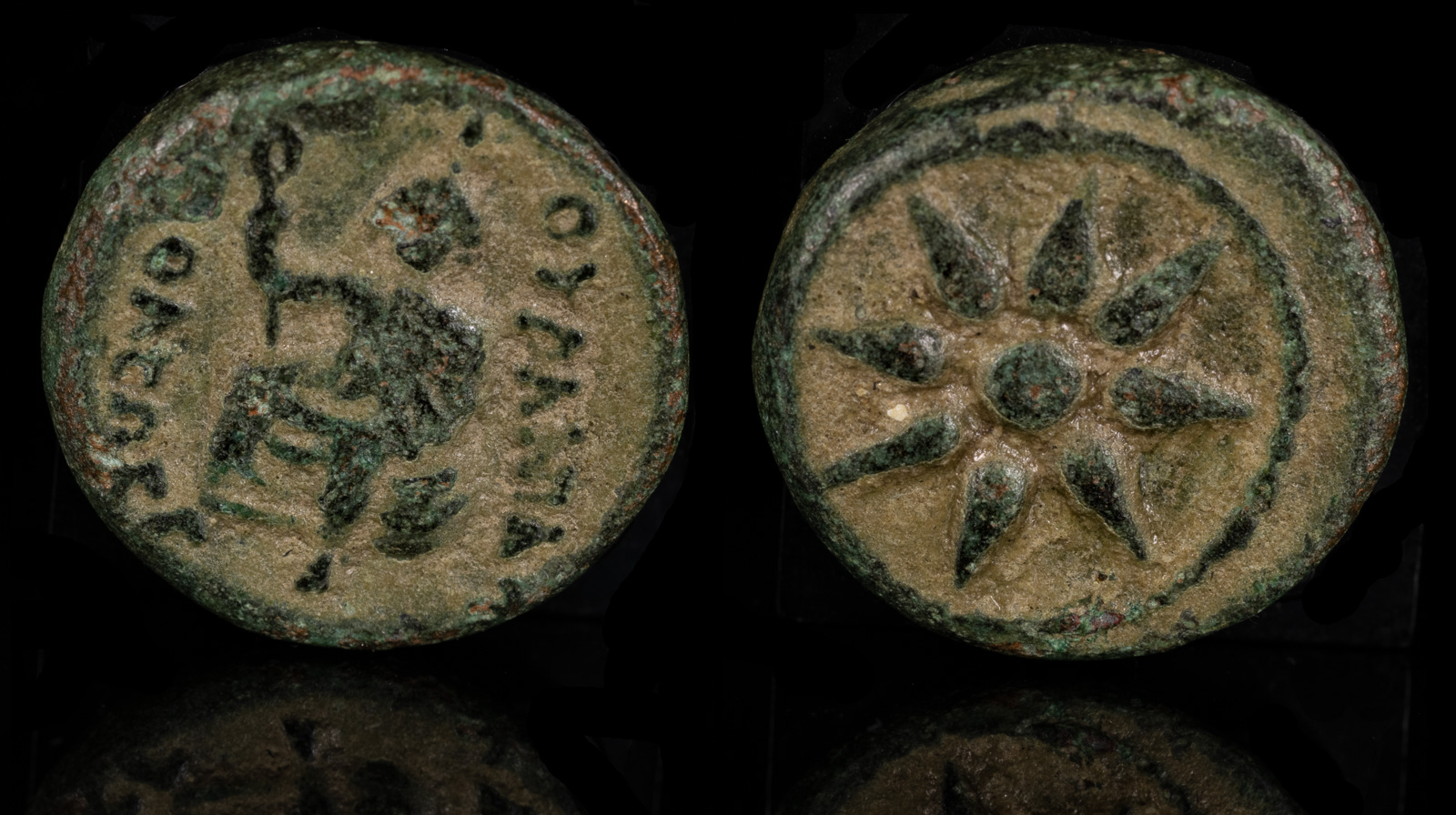Urania
View All Tags
In artistic representations, Urania was often depicted holding a globe or a staff, with a starry crown or a celestial sphere, which symbolized her connection to the heavens. Sometimes, she was shown with a compass, emphasizing her role in guiding the study of the stars and the measurement of the cosmos. Her depiction was meant to reflect the lofty and abstract nature of her sphere of influence—high above the earthly realm, embodying the study of the universe and its natural laws.
As the Muse of astronomy, Urania was particularly revered by those who sought to understand the movements of the stars and planets. Ancient scholars and scientists, such as Hipparchus and Ptolemy, were associated with her influence, and she was often invoked in the context of astrological practices that sought to understand fate and the influence of celestial bodies on human affairs.

Macedon, Uranopolis c. 300 BCE.
Æ 15mm, 3.33g
Star of eight rays. R/ Aphrodite Urania, holding sceptre, seated slightly l. on globe.
SNG ANS 914-8; AMNG III.2, 4; HGC 3.1, 607
Ex London Ancient Coins